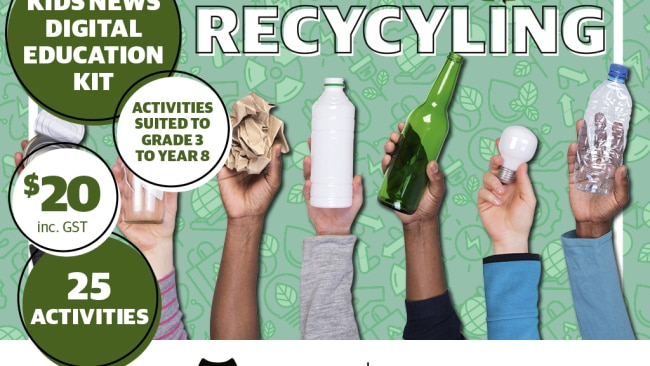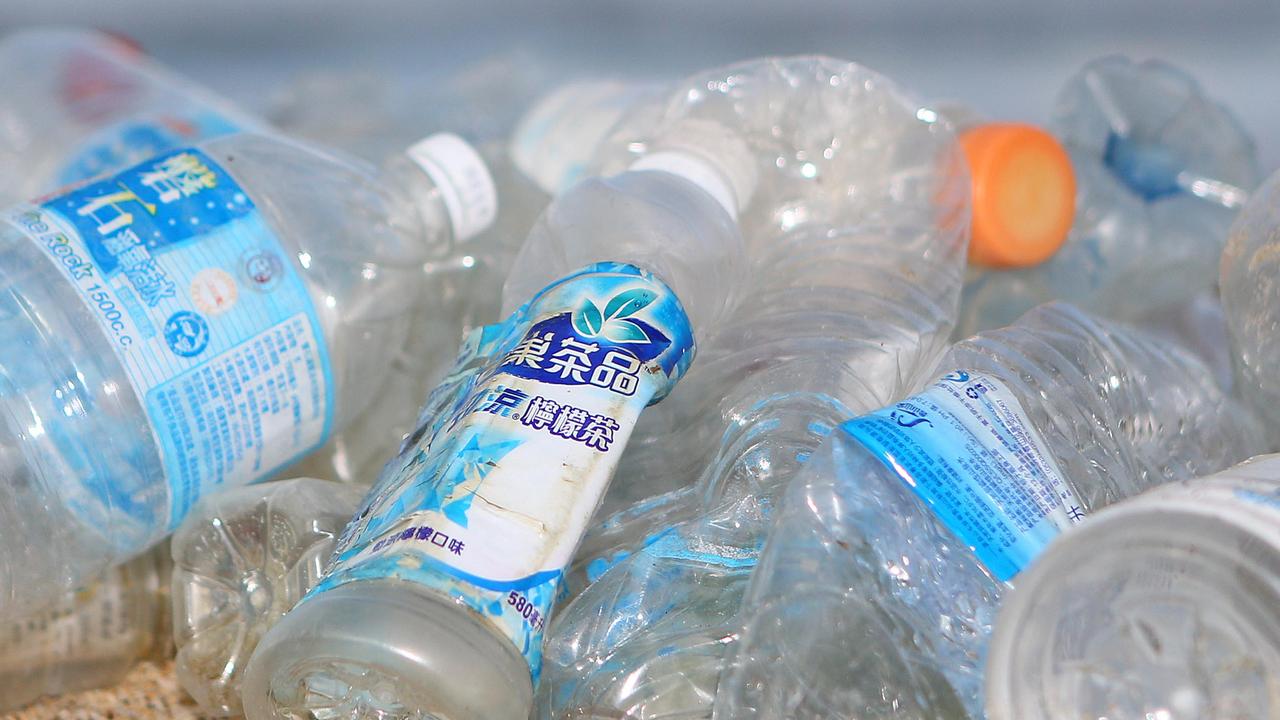You can be a great recycler. All it takes is a little care and up-to-date information
PART SIX: Follow our guide on how to be a good recycler to make sure nothing you throw out ends up in landfill or the ocean. You’re on your way to being a fantastic recycler

READING LEVEL: GREEN
Being a good recycler starts with thinking about what you put in the bin and changing any bad habits.
The top three recycling mistakes are:
— Putting plastic bags and soft plastics in your recycling
— Putting recyclable products in the rubbish bin
— Contaminating* recycling with food
LOOK AT WHAT’S IN YOUR BIN
Are there things you are putting in the bin that could be recycled?
Sometimes what you are allowed to recycle depends on where you live so it is important to check your council’s recycling rules.
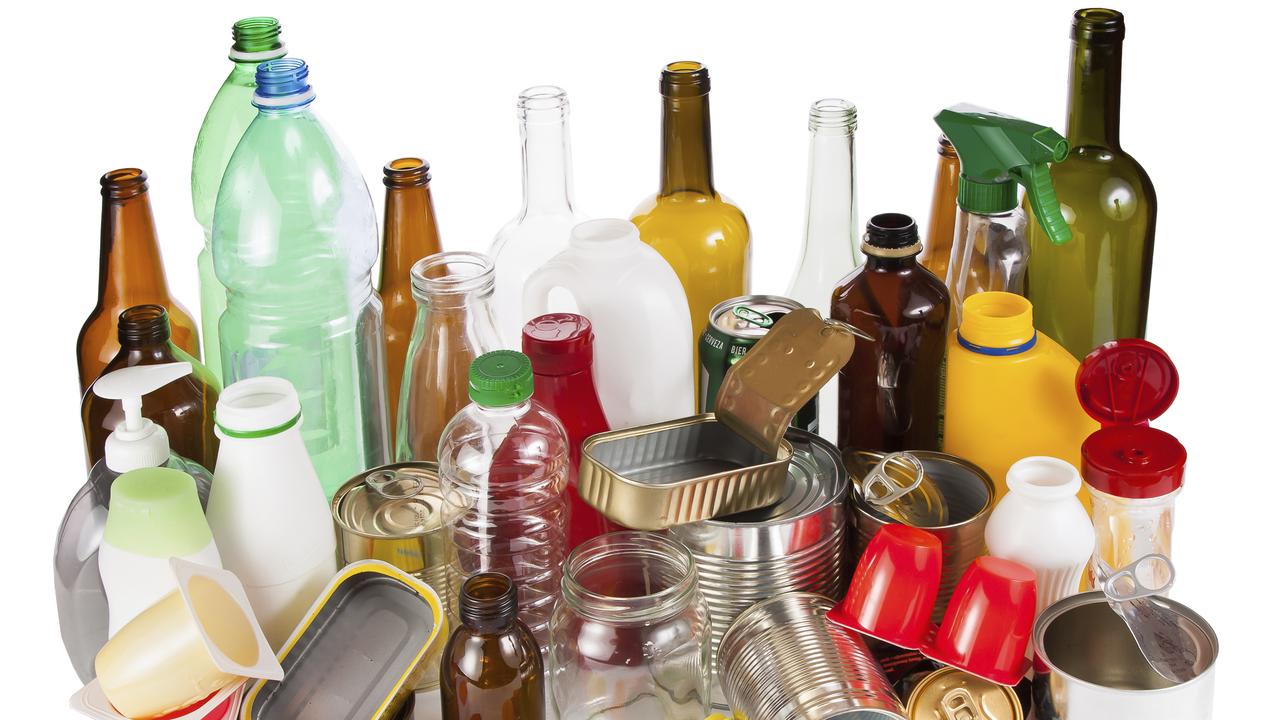
The most common recyclable items are:
— Paper and cardboard
— Cartons
— Metal cans
— Glass jars and bottles
— Plastic containers
VIDEO: Great tips for recycling. Check with your own local council for more information
Look for labels on packaging that are there to make it easier for you to know which bin the packaging belongs in. Recycling labels on packaging are new in Australia so you may not yet be familiar with them. The labels may also not yet be on every item you buy.
Often, items we buy include different types of packaging, such as smaller items packaged in plastic inside a cardboard box. The new label will tell you what to do with each type of packaging.
It’s important to know the things that should never go in your recycling bin, too. These include:
— plastic bags or recyclables inside plastic bags
— disposable nappies
— garden waste
— polystyrene*
— syringes or medical waste
— dead animals
— oils
— ceramics*, ovenware or light bulbs
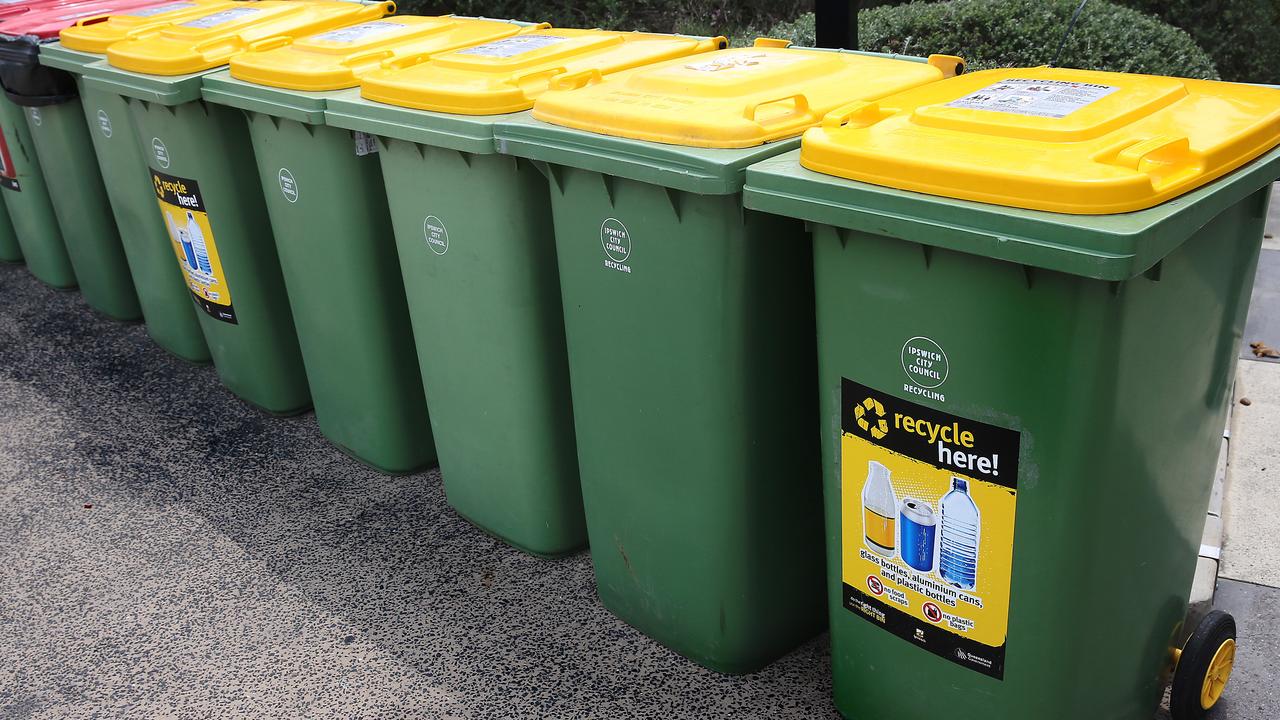
RECYCLING TIPS
Thinking about what can and can’t be recycled can get confusing. Here are some useful tips to help:
— Larger items are better for recycle bins, smaller items, such as bottle tops are best left out
— Empty, dry paint tins can go in the recycle bin
— Clean aluminium foil and trays can be recycled
— Plastic garden pots can be recycled
— Empty aerosol containers, such as spray deodorant, can be recycled
— Clean shampoo bottles, detergent and cleaning product bottles can be recycled
— Lids from hard plastic, such as ice-cream containers are big enough to recycle
— Lids from metal tins can be included if placed inside the tin so that they can’t fall out
— Paper tissues and serviettes or napkins should go in the bin
— Disposable coffee cups cannot be recycled
— If in doubt, leave it out!
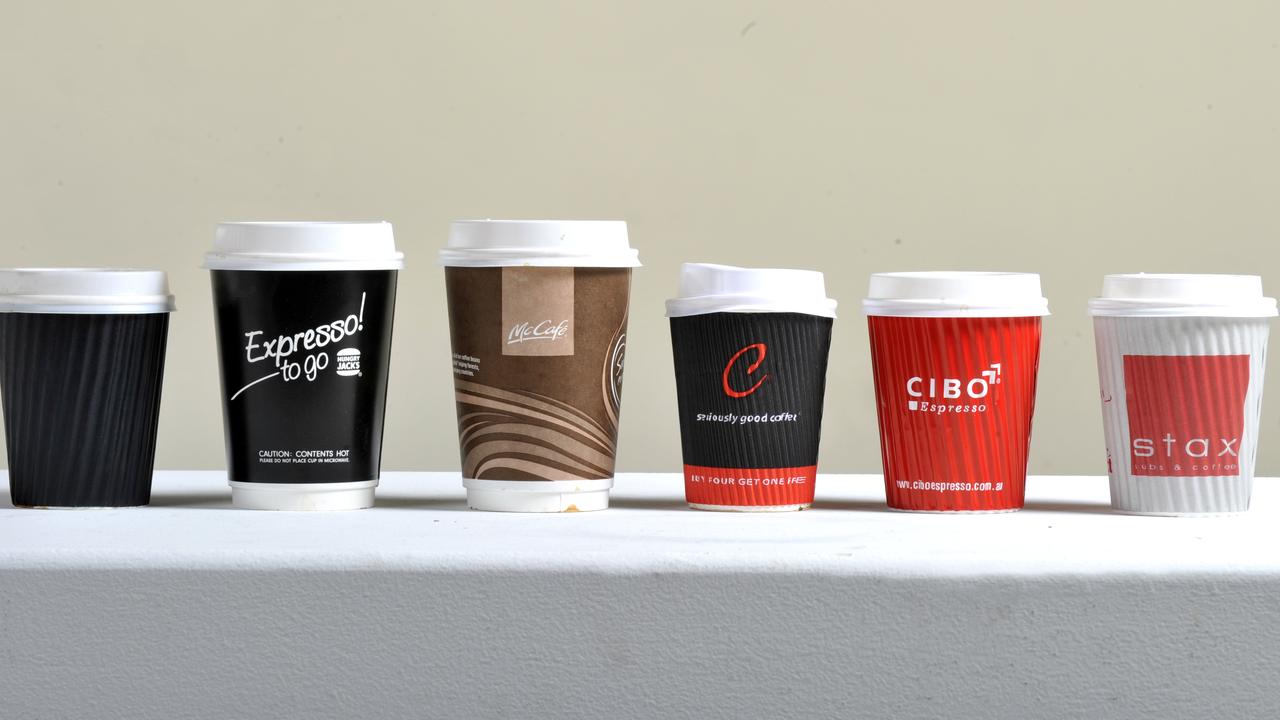
OTHER WAYS TO RECYCLE
Recycling isn't always about what we can put in the recycle bin. There are other, simple ways to reduce waste.
Water: It is precious in Australia so it’s important we use it wisely. Water is also easy to recycle. Easy ways to save water include taking shorter showers, turning the tap off when brushing your teeth and using a plug in the sink when washing fruit and vegetables.
Water we use in the home, except for the water used to flush toilets, is called greywater. Collecting greywater to water the garden is another way to save water. Some ideas include collecting water in a bucket while you shower, place a bucket or jug in the sink while you wait for hot water and connecting a long hose from the washing machine to extend it to the garden. Can you think of other ways to collect the water you use inside the home for the garden?
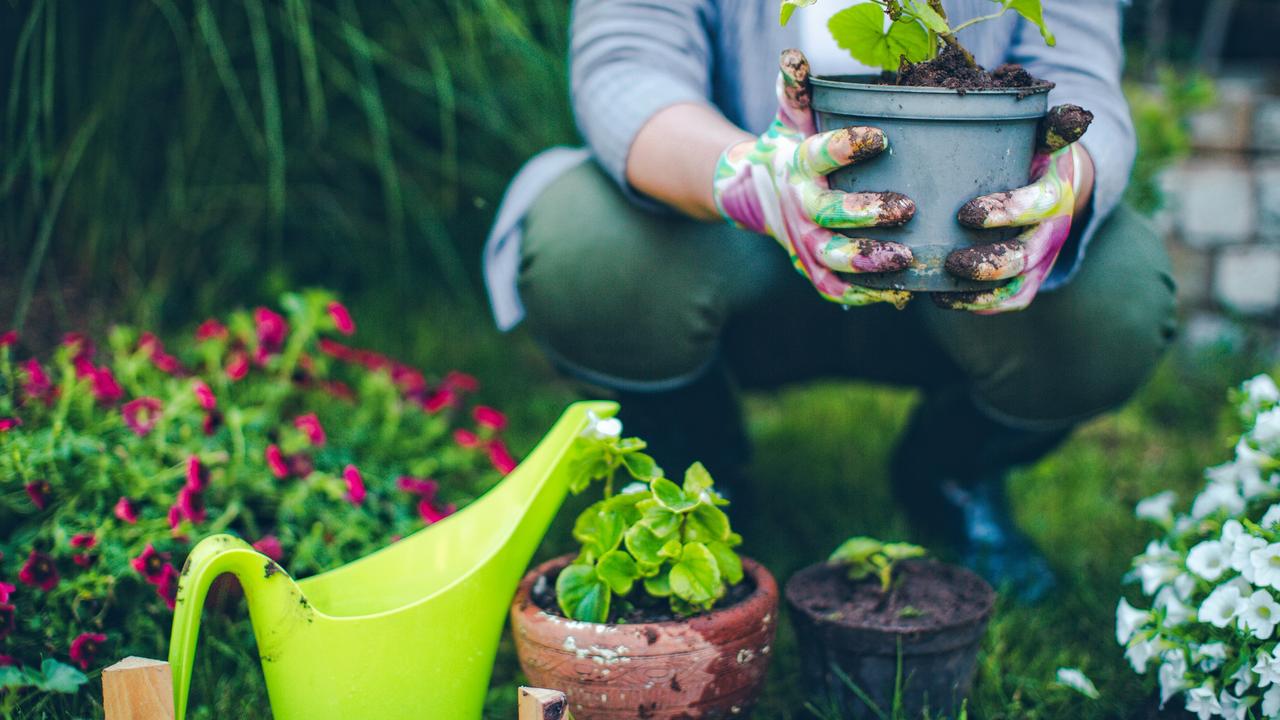
Clothing: Australia sends around $500 million worth of clothing to landfill each year, but almost all of it could be recycled. The easiest way to recycle clothing is to send clothes you don’t want to a local charity or second-hand clothing shop.
You could also sell your unwanted clothes on websites such as Gumtree or eBay, through a garage sale or market stall or give your clothing to family or friends (is there someone younger who could use clothes you have grown out of?). Clothes too worn to give away can be cut up to use as cleaning rags.
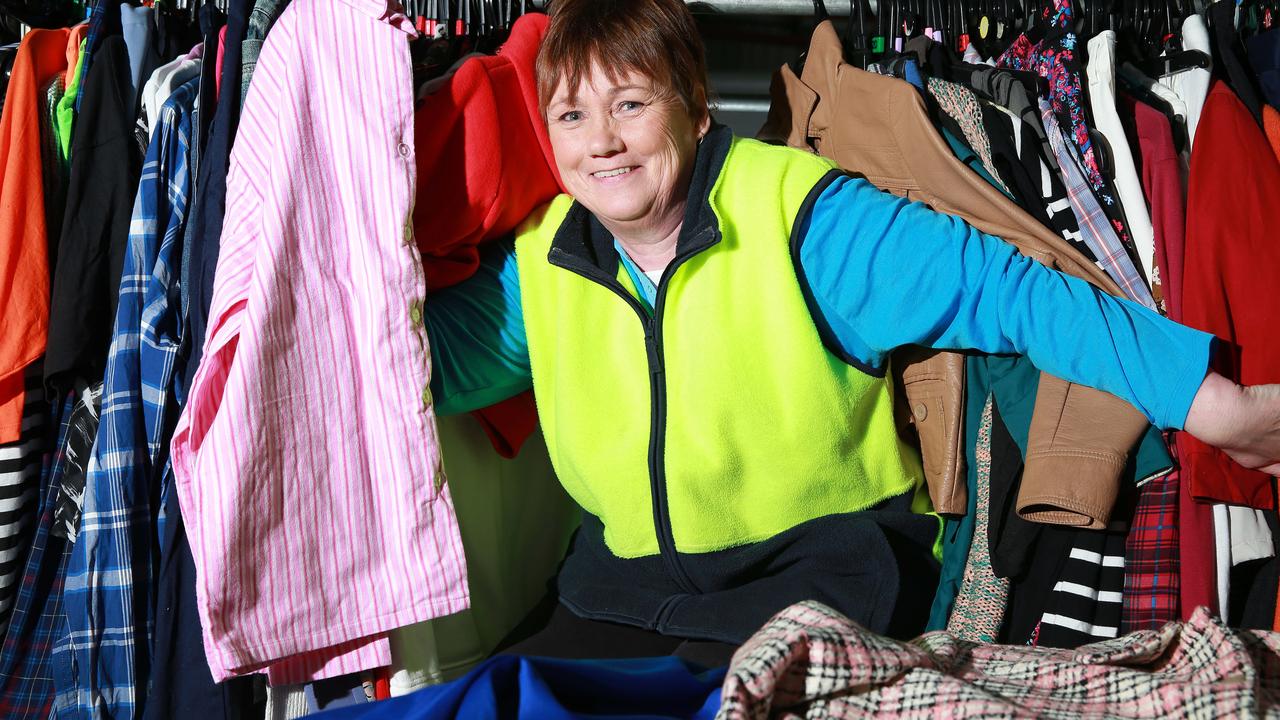
The best way to reduce clothing waste is to buy less, buy better quality clothing that lasts longer and make repairs rather than buy new. Could you consider second-hand clothing before buying new?
Compost: Australians throw away more than $10 billion of food each year! Turning our unwanted household food into usable compost is easy.
Food scraps include vegetables, fruit, tea, bread, cereals, eggshells, grains, meat and dairy products. Compost is decayed material from food scraps that can be used as a fertiliser to grow plants. Its benefits include reducing greenhouse gas emissions from food sent to landfill.
A household compost bin, compost heap, worm farm or Bokashi bucket (a special bucket system that is kept indoors) is an excellent way to recycle food scraps and garden cuttings.
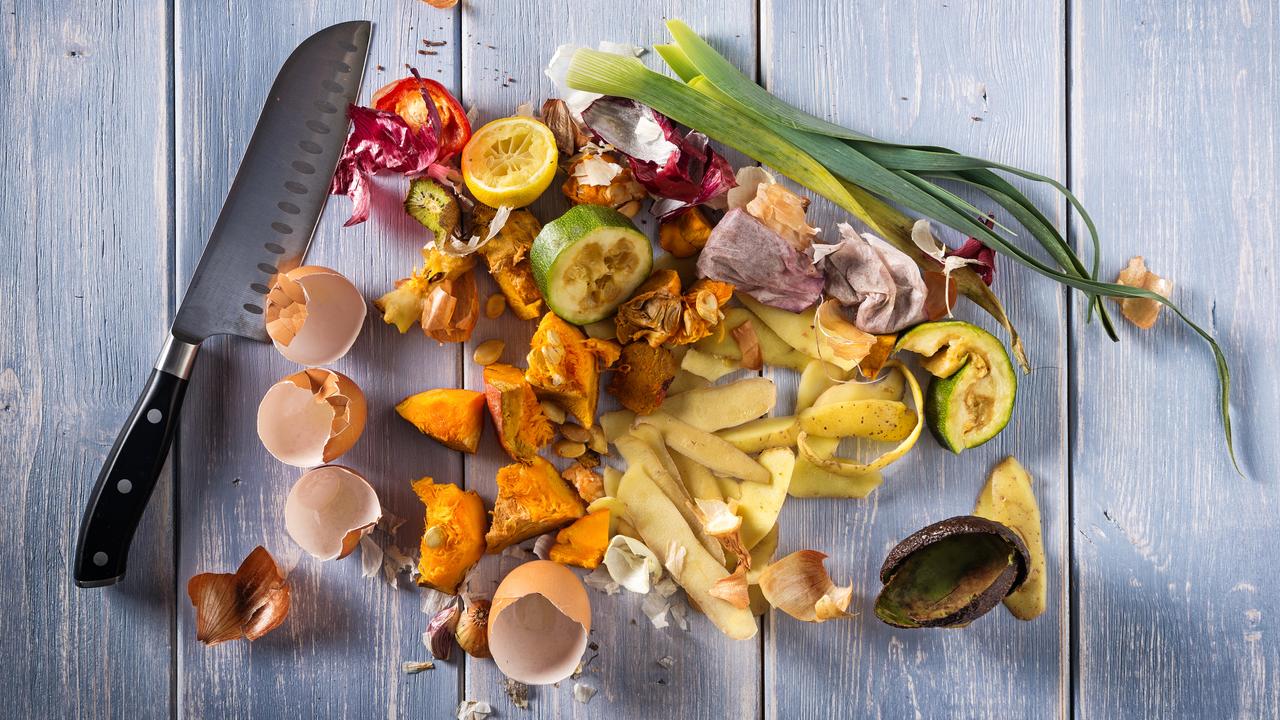
OUT AND ABOUT
Being a good recycler starts at home but it is just as important to keep good recycling habits away from home.
Remember, the same rules apply when placing items in recycling bins in public places and most public bins show what items go in each bin.
Also:
— Always take a reusable water bottle with you
— Ask for no straw in your drink
— Use a reusable coffee cup, good for hot chocolate too!
— Pick up any other rubbish you see
— If there is no recycle bin, take your recyclable rubbish, including food scraps, home to go in your own bin
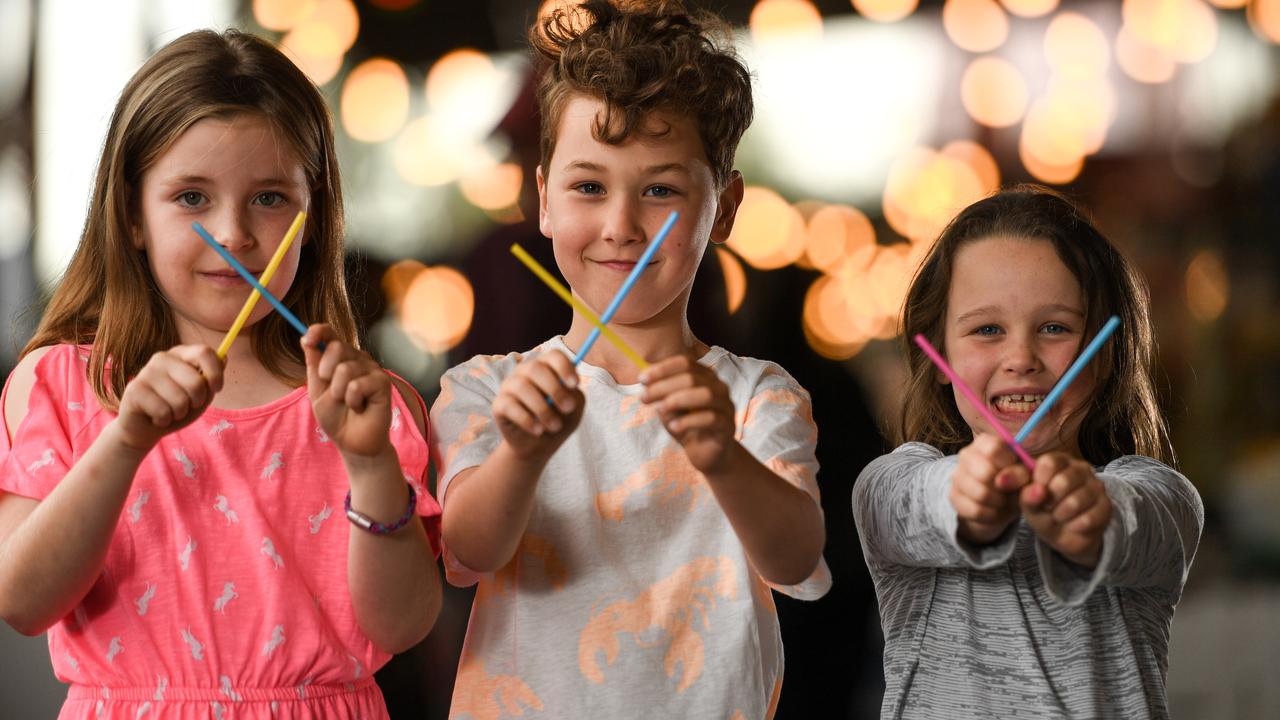
EXTRA READING
Part Five: Comparing Australian recycling to the rest of the world
Part Seven: Close the recycling loop: buy it back
Part Eight: Your big ideas on recycling could save the world
FOR ALL RECYCLING STORIES, click HERE
GLOSSARY
contaminating: making dirty or impure
polystyrene: foam, used for meat trays and sometimes disposable drinking cups and plates
ceramics: crockery, sometimes called china, such as mugs and plates
LISTEN TO THIS STORY
25 CLASSROOM ACTIVITIES
For classroom activities on this story and much more, go to https://kidsnews.myshopify.com/products/kids-news-digital-education-kit-recycling to purchase the recycling workbook with 25 activities for the early bird price of just $5 (including GST).
Early bird offer ends at 5pm on December 14. Thereafter, the price increases to $20 inc GST.
SOURCES
Planet Ark “The Golden Rules of Kerbside Recycling”, visit recyclingnearyou.com.au/resources/golden-rules
Planet Ark “Food Scraps”, visit recyclingnearyou.com.au/food/
NetWaste, visit netwaste.org.au/recycle-it/what-can-be-recycled/
Australian Government’s Your Home guide, visit yourhome.gov.au/water/wastewater-reuse
Sustainability Victoria, visit sustainability.vic.gov.au/You-and-Your-Home/Waste-and-recycling/Furniture-and-household-items/Clothing
